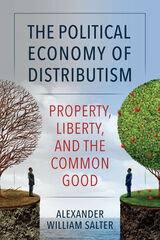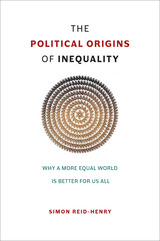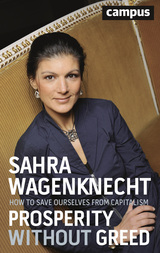
What determines the rate of growth, the distribution of income, and the structure of relative prices under capitalism? What, in short, makes capitalist economies tick? This watershed treatise analyzes the answers to these questions provided by three major theoretical traditions: neoclassical, neo-Marxian, and neo-Keynesian. Until now, the mutual criticism exchanged by partisans of the different traditions has focused disproportionately on the logical shortcomings of rival theories, or on such questions as whether or not input–output relationships can be described by a continuous-substitution production function.
In this book, these are at best secondary issues. The real distinguishing features of the theories, for Stephen Marglin, are their characterization of labor markets and capital accumulation. For clarity, Marglin first sets out the essential features of each theory in the context of a common production model with a single good and a fixed-coefficient technology. He then formalizes the different theories as alternative ways of closing the model. In subsequent chapters he examines the effects of relaxing key simplifying assumptions, in particular the characterization of technology and the homogeneity of output and capital. And although his primary emphasis is theoretical, he does not ignore the problem of empirically testing the theories. Finally, he synthesizes the insights of the neo-Marxian and neo-Keynesian models into a single model that transcends the shortcomings of each taken separately.
Marglin anticipates that partisans of the different traditions will agree on one point: each will allow that the book reveals the shortcomings of the other theories but will insist that it fails utterly to reflect the power and majesty of one’s own particular brand of truth. Growth, Distribution, and Prices will be controversial, but it will not be ignored.


The problem of inequality, Reid-Henry argues, is a problem that manifests between places as well as over time. This is one reason why it cannot be resolved by the usual arguments of left versus right, bound as they are to the national scale alone. Most of all, however, it is why the level of inequality that confronts us today is indicative of a more general crisis in political thought. Modern political discourse has no place for public reason or the common good. Equality is yesterday’s dream. Yet the fact that we now accept such a world—a world that values security over freedom, special treatment over universal opportunity, and efficiency over fairness—is ultimately because we have stopped even trying in recent decades to build the political architecture the world actually requires.
Our politics has fallen out of step with the world, then, and at the every moment it is needed more than ever. Yet it is within our power to address this. Doing so involves identifying and then meeting our political responsibilities to others, not just offering them the selective charity of the rich. It means looking beyond issues of economics and outside our national borders. But above all it demands of us that we reinvent the language of equality for a modern, global world: and then institute this. The world is not falling apart. Different worlds, we all can see, are colliding together. It is our capacity to act in concert that is falling apart. It is this that needs restoring most of all.

READERS
Browse our collection.
PUBLISHERS
See BiblioVault's publisher services.
STUDENT SERVICES
Files for college accessibility offices.
UChicago Accessibility Resources
home | accessibility | search | about | contact us
BiblioVault ® 2001 - 2024
The University of Chicago Press









